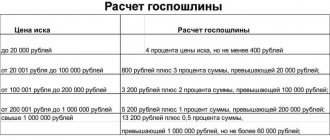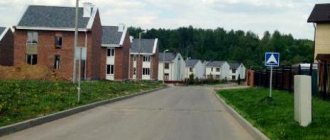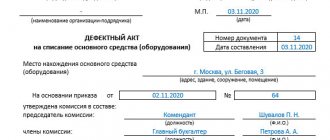Main provisions of Law No. 214-FZ
So, let’s figure it out - what is Federal Law 214, how does it protect shareholders?
This Federal Law regulates the legal and financial relationships between developers and equity holders. Feature of Federal Law 214: the legal component of the relationship between equity holders and the developer is based on the signing between the parties of an agreement on shared participation in the construction of a real estate property. A document signed by both parties and registered with Rosreestr gives the right in the future for the shareholder to receive ownership of the purchased property. Ownership of a finished apartment, parking space, etc. transferred to him only after the building is put into operation. If shareholders discover that the developer is raising their money unlawfully, they have the right to claim not only their own funds invested in the construction of the house, but also losses incurred as a result of the developer’s unlawful actions. Also, participants in shared construction may require the developer to pay interest in accordance with the key rate of the Central Bank of the Russian Federation, and at double the rate.
Does Federal Law 214 guarantee the protection of the shareholder?
More than ten years of operation of the Federal Law have shown that it really works, providing full protection for equity holders from fraudulent and gray schemes for selling apartments in new buildings previously used by developers. Purchasing an apartment under the DDU in accordance with Federal Law 214 provides the developer with guarantees that the housing paid for by the shareholder will go only to him and will not be resold to someone else.
Federal Law 214 also provides guarantees to protect the rights of shareholders in the event of unforeseen circumstances, in particular, in the event of bankruptcy of the developer. In this case, the shareholder can count on a refund or transfer of the finished property. Of course, this is an important, but far from the only guarantee that the shareholder receives.
List of developers according to the requirements of Law 214-FZ
Construction companies raising funds for shared construction must meet certain requirements.
Control over developers is carried out on the basis of Law No. 214-FZ. It is in Article 23.1 that the provision on a unified list of developers is enshrined as a systematic source of information about companies that meet all the requirements. The list of developers under Federal Law 214 makes it possible to verify that a construction company can generally raise funds on the basis of an agreement for participation in shared construction.
On the one hand, the list is necessary for regulatory authorities to supervise the activities of developers, and on the other hand, with the help of this list, the participants themselves can check the construction company and obtain reliable information about it.
Our cases
- Recovered: RUB 14,500,000.
As a developer, Mayak paid 14.5 million rubles. for the war he started Read more - Inclusion in the register of transfer of housing
How we overcame the bankruptcy trustee and joined the register Read more
- Recovered: RUB 2,260,000.
How we squeezed 2,260,000 rubles out of crooked window profiles from the developer LSR Object-M Read more
- Recovered: RUB 1,634,800.
We collected 1.6 million rubles (206%) for deficiencies in the decoration of the apartment according to the DDU from FSK Leader More details
- Investment is not recommended
How we saved the client RUB 14,665,500. investment Read more
- Recovered: RUB 898,735.
The developer "Lotan" paid the shareholder 274% of the market cost of eliminating the defects Read more
- Recovered: RUB 2,415,243.
How a shareholder received 2.4 million rubles. from “StartSK” on the agreement to terminate the DDU Read more
- Recovered: RUB 1,180,500.
The court recovered 537% of the cost of eliminating deficiencies from PIK-Region More details
- Recovered: RUB 21,394,502.
How to get 21 million rubles. upon termination of a contract for an object worth 9 million. Read more
- Recovered: RUB 2,200,000.
Collection of 2,200,000 rubles from BM-Stroy for poor quality repairs in an apartment Read more
- Investment is not recommended
How an analysis of a counterparty helped save RUB 3,385,679. More details
- Recovered: RUB 641,094.
We collected more than 215% of the cost of eliminating defects from the Lotan developer More details
All cases
What does Federal Law 214 give to shareholders?
How exactly does the new law protect shareholders? In order to be able to attract citizens’ money for the construction of a house or building, the developer must own or lease (sublease) a plot of land, as well as a construction permit. In addition, the developer is obliged to publish a project declaration for this facility in the unified housing construction information system. In addition, the developer is subject to the following mandatory requirements:
- The manager, chief accountant or owner of the development company must not have an outstanding criminal record for crimes in the economic sphere or against government authority.
- The developer must not be in the process of liquidation or bankruptcy.
- He should not be included in the register of unscrupulous suppliers and participants in land auctions.
- It is necessary to have project documentation and a positive expert opinion.
These conditions, imposed by law on the developer, guarantee the shareholder that he will not enter into an agreement with an unreliable company, which after some time will evaporate along with his money. In addition, a mandatory condition for attracting money is that the developer makes contributions to the compensation fund for each residential building.
And if the project is new, and its construction began after July 1, 2019, a mandatory condition is to attract money from shareholders through an escrow account. This means that no matter how events develop, the shareholder will definitely be able to get his money back. Since the money will be in the bank throughout the construction, if problems arise with the developer, the lending institution will return the money to the shareholder.
Purchasing an apartment under Federal Law 214 guarantees the purchase of high-quality housing, since the developer must pay the equity holder out of his own pocket for all his flaws in construction. And if he does not want to pay or eliminate shortcomings, then the participant can, on his own initiative, terminate the contract, return his money, as well as interest on the money paid. In addition, the guarantees for the building must remain valid for at least five years after the apartment is transferred to the shareholder.
Question: What does Federal Law 214 guarantee in case of bankruptcy of a developer?
Answer: In the event of bankruptcy of a construction company during shared construction, the law considers two scenarios for protecting the shareholder:
- Request for the return of funds already paid. In this case, the shareholder will have to abandon the property under construction.
- Demand that the property be transferred to him. In this case, of course, there will be no refund.
Which option to choose is decided by the shareholder himself. Of course, if construction is in its early stages, then it is better to try to get the money back. If the object is almost completed, or has already been built, but has not yet been put into operation, then the second option will be the best.
As for the time frame for building a house and transferring the finished object to the shareholder, here too the law establishes clear restrictions. Their essence: if the developer does not meet the deadline, the participant can demand a penalty, and if there is a significant deviation from the construction schedule, the contract can be terminated.
On December 18, the State Duma will adopt bill No. 581453-7 in the second reading, amendments to which were approved on December 14, 2018 by the relevant Duma committee . Once again, housing finance rules are set to undergo significant changes.
Photo: www.gospress.ru
Law 214-FZ
I. The main change is
the reduction of objects in respect of which, from July 1, 2021, the developer will be able to directly (without escrow accounts) raise funds from citizens.
It is determined that from July 1, 2021, the developer will continue to directly raise funds from citizens only in relation to houses with a high degree of readiness. The criteria for a high degree of readiness will be the following indicators:
● degree of readiness of the object;
● number of preschool inmates.
Specific indicators of these criteria will be established by the Government of the Russian Federation.
Let us note that the novella supported by the deputies contradicts the road map for the abolition of shared-equity construction approved by the Government of the Russian Federation. According to the roadmap, the final, third, stage of the reform provided for the mandatory transition to escrow accounts only if the first DDU was concluded after July 1, 2021. This is precisely the norm contained in the current legislation on shared-equity construction.
II. Relaxation of experience requirements for developers
The requirements for area are being relaxed (from 10,000 sq. m to 5,000 sq. m), which confirms that the developer has construction experience.
III. Prohibition on raising funds from housing cooperatives
Housing cooperatives can attract funds from citizens only for the construction of objects with construction permits issued before 07/01/2018.
According to the current legislation, permission to raise funds extended to housing cooperatives created before July 1, 2021.
IV. The requirements related to raising funds for the construction of facilities for which a construction permit (PC) was issued before 07/01/2018 are changing.
Developers are required to open a current account for each RS. Now this requirement does not depend on the date of issue of the RS.
Requirements are canceled:
● on opening a current account in one authorized bank with the technical customer and the general contractor;
● on limiting the territory to one or several RS within the framework of GPZU, KOT, RZT, KRT (the law is being brought into line with the explanation of the Ministry of Construction of Russia).
Information about the closing or opening of a developer's current account in relation to any object (account number, INN, OGRN of the bank) is posted in the Unified Housing Information System no later than 1 business day from the date of opening or closing the account. Now this requirement does not depend on the date of issue of the RS.
Photo: www.ktostroit.ru
The restrictions on transactions on the account established by Article 18.2 of 214-FZ now apply to all objects for which funds from equity holders are raised. The only exceptions are account transactions intended to fulfill the developer’s obligations that arose before 07/01/2018.
The prohibition for developers, regardless of the date of issue of the RS, is unambiguously defined (in wording that excludes double interpretation):
•
attract non-targeted loans;
•
use property to secure obligations of third parties;
•
assume obligations to ensure the fulfillment of obligations of third parties;
•
issue and issue securities;
•
create commercial and non-profit organizations;
•
make cash payments.
Authorized banks are given the right to request additional documents to conduct account transactions in relation to all objects, regardless of the date of issue of the RS.
V. The developer’s right to choose a bank to place a deposit is limited
Developers have the right to place temporarily available funds on deposit only in an authorized bank in which a current account is opened.
VI. Escrow accounts
If a developer receives a construction loan, the equity holders must deposit funds into escrow accounts opened with the authorized bank that provided the loan. In the case of refinancing a loan in another bank, shareholders under the DDU concluded after the loan was issued deposit funds into escrow accounts in another bank that refinanced the loan.
Photo: www.allwomanday.ru
VII. Targeted use of shareholders' funds
It is allowed to use the funds of shareholders for the maintenance of premises and parking spaces from the date of their commissioning, if the rights to such premises are not registered.
It is allowed to attract loans from the participants and founders of the developer (individuals and legal entities), including paying interest on them from the funds of the shareholders. At the same time, the law establishes a number of conditions under which the conclusion of these loan agreements is permitted.
According to the transitional provisions, these changes do not apply to objects for which the RS was received by the developer before 07/01/2018.
VIII. Possibility of concluding a contractual agreement in the interval between the commissioning of an object and its cadastral registration
After putting the object into operation, but before cadastral registration, the developer can conclude a DDU. In this case, DDUs are concluded without paying contributions to the fund and without using escrow accounts.
According to the transitional provisions, this change does not apply to objects for which the RS was received by the developer before 07/01/2018.
IX. Banking control
The number of current accounts should not exceed the number of building permits.
It is prohibited to withdraw and credit funds to a current account in cash (with the exception of wages, taxes, contributions).
Banking control ceases after the facility is put into operation and one right of ownership of the shared construction facility is registered.
According to the transitional provisions, these changes do not apply to objects for which the RS was received by the developer before 07/01/2018.
X. Project Declaration
The Project Declaration (PD) must indicate the amount of payments under the RZT, KOT, KRT agreements.
Photo: www.minstroy.alania.gov.ru
XI. Supervisory authority
Scheduled inspections are excluded.
Unscheduled inspections without notifying the developer are carried out in the following cases:
•
expiration of a previously issued order;
•
irregularities in quarterly reporting;
•
deviations from construction schedules for 6 months or more;
•
order of the head of the control body.
XII. Responsibility
The joint liability of the beneficiary of the developer for the obligations of the legal entity has been replaced by subsidiary liability.
XIII. Placing information in the UISZHS
Responsibilities of housing cooperatives
An obligation has been introduced for housing cooperatives to post in the Unified Housing Information System the information that housing cooperatives currently place in the Housing and Communal Services GIS.
This obligation arises for housing cooperatives 9 months from the date of entry into force of the law. Before the expiration of 9 months, the operator of the Unified Housing Information System and the GIS Housing and Communal Services are obliged to ensure that these systems can transfer information and documents.
Responsibilities of developers
An obligation is being introduced for developers to place project documentation (PD) in the UISZhS. The stage of project documentation is not indicated: “project” or “detailed documentation”. Developers who received the expert opinion before 07/01/2018 are required to send the project documentation to the Unified Housing Insurance System no later than 6 months from the date the system operator announced technical readiness. Submission of project documentation after the specified period is the basis for an unscheduled inspection.
Responsibilities of Rosreestr
An obligation has been introduced for Rosreestr to place in the UISZhS information about the cancellation of an entry in the Unified State Register of Residential Registers (USRN) on the registration of a child-care facility.
Responsibilities of the Unified State Register operator
The Unified State Register operator places in the UISZhS:
● information on the conclusions of the examination of design documentation and engineering survey results (ERI);
● information about PD and RII;
● expert opinion;
● PD and RII.
Photo: www.psbr.rf
Law “On Insolvency (Bankruptcy)”
XIV. The register of requirements of residential premises has been replaced by a register of requirements of construction participants
The register of requirements of residential premises has been replaced by a register of requirements of construction participants. Before approval, in accordance with the procedure established by the Bankruptcy Law, of the federal standard on the rules for maintaining a register of claims of construction participants, the claims of construction participants (both for the transfer of residential premises and for the transfer of parking spaces and non-residential premises) are included in the register of claims for the transfer of residential premises, taking into account the priority provided for the specified amendments.
If bankruptcy proceedings were initiated before the date of entry into force of the amendments, and settlements with third-priority creditors (interest holders) have not begun, the bankruptcy trustee includes demands for the transfer of non-residential premises and parking spaces in the register of claims of residential premises and excludes them from the 4th queue of the register of creditors' claims. If such demands are not presented in accordance with the current procedure, they can be presented to the bankruptcy trustee within 2 months from the date of entry into force of the amendments.
The register of requirements includes requirements, including the transfer of non-residential premises in an amount not exceeding 7 square meters. m, parking spaces.
The construction site includes a building (structure) intended to accommodate parking spaces, in respect of which construction participants have requirements for the developer.
XV. Additional requirements for the bankruptcy trustee of the developer
Additional requirements are being introduced for the bankruptcy trustee of the developer:
•
experience in arbitration management in bankruptcy proceedings of at least 3 developers.
•
absence of criminal liability for illegal actions in bankruptcy.
Photo: www.pbs.twimg
XVI. The fund is in bankruptcy proceedings. Special developer created by the Foundation
To finance construction completion activities carried out under public law, the Fund may enter into a contractual agreement. At the same time, a ban is introduced on the assignment of rights under such DDUs before the facility is put into operation. When concluding such contracts, insurance and payment of contributions to the compensation fund are not required.
The purchaser of the property of a bankrupt developer (land and “unfinished property”) can be a non-profit organization created by the Fund. Unlike another legal entity, such an organization becomes an acquirer without a competition.
The property of the bankrupt developer, which is transferred to the new developer, has been determined:
•
land plot intended for construction;
•
inseparable improvements;
•
unfinished construction projects;
•
OKS, which ensures the connection of the facility to networks;
•
infrastructure facilities;
•
rights to design documentation;
•
rights under contracts concluded with the design organization, the general contractor and the technical customer.
The new acquirer is obliged to complete the construction of the object no later than 3 years from the date of its acquisition.
If a bankrupt developer has several land plots, they can be transferred separately to one or more purchasers.
Photo: www.nemotor.ru
Law 218-FZ “On public legal
XVII. Special developer
Developer created by the Foundation:
•
must not meet the requirements for the developer provided for in parts 1-26, 4, 5 of Article 3.
•
is not subject to banking control;
•
must not comply with the requirements for the intended use of funds;
•
does not have the right to attract funds from shareholders;
•
subject to external government audit.
XVIII. Compensation Fund
Return of funds from the compensation fund to the nominal account is carried out in the following cases:
•
lack of grounds for paying contributions.
•
amounts paid in excess by the developer.
Photo: www.saratov.gov.ru
XIX. Additional powers of the Foundation
The Fund for the Protection of Shareholders is vested with the authority to inspect the financial and economic activities of developers, including at the location of the developer and (or) with the involvement of auditors, appraisers, and persons carrying out construction and technical expertise. The procedure for conducting inspections and the criteria for developers who may be subject to inspections will be established by an act of the Government.
The Fund has the right to conduct inspections of other business entities that are part of the same group as the developer.
The Fund carries out monitoring, including the construction of facilities within one or more RS, but within the limits of GPZU, PPT, RZT, KOT or KRT.
The Fund notifies the developer about the fact of arrears through the personal account (presumably we are talking about arrears on taxes). If the developer fails to eliminate the arrears, he sends a notification to Rosreestr to suspend the registration of the DDU. The notice period is 20-23 working days.
Photo: www.kr-gazeta.ru
ERZ Help
The bill does not take into account all the instructions of Deputy Prime Minister of the Russian Federation Vitaly Mutko
. Some of the unaccounted orders were very significant for developers. Let's remind them:
•
provide for the possibility of determining the price of the DDU of objects for which a construction permit was received before 07/01/2018, as the amount of money to reimburse the costs of constructing the object and paying for the services of the developer;
•
provide the developer with the opportunity to eliminate individual violations within a month without applying sanctions to him during this period in the form of a ban on registering new DDUs;
•
give the regulatory authorities the authority to apply to the arbitration court to declare the developer bankrupt, to include in the criteria (signs) of insolvency and (or) insufficiency of the developers’ property the violation of the deadlines for the transfer of apartments for six or more months;
•
provide the developer with the opportunity to gradually release funds in escrow accounts in proportion to the volume of work performed;
•
provide for the possibility of moving later than July 1, 2021 the date of entry into force of the provision on the mandatory use by developers of the escrow account mechanism in the construction of apartment buildings;
•
introduce an increased amount (6% instead of 1.2% of the price of the DDU) of contributions to the compensation fund for those developers who send their first DDU (within the framework of already obtained construction permits) for registration after January 1, 2021.
Photo: www.mshj.ru
Other publications
An expanded package of amendments to 214-FZ will be adopted in the second reading on December 18
Insurers are asking to extend their work with developers until the end of next year
The relevant State Duma committee on Thursday will consider amendments to 214-FZ before the second reading
Vladimir Chistyukhin (Bank of Russia): The Fund should insure shareholders against long-term construction
Amendments to 214-FZ will be adopted in December
Vladislav Preobrazhensky: Moscow investors formulated proposals for the second reading of amendments to the law on shared-equity construction
Additional changes to 214-FZ were adopted in the first reading
It has become known what amendments to the legislation on shared-equity construction are being considered by the Government of the Russian Federation
Nikolay Nikolaev: The new model of financing shared construction will incorporate current practice
The rules for shared construction will change again before the end of the year.









